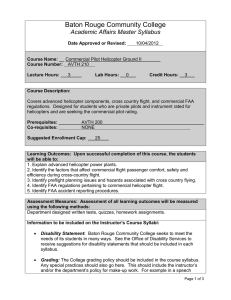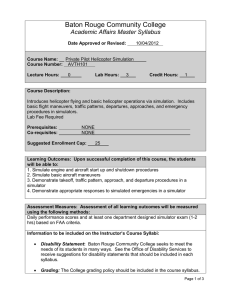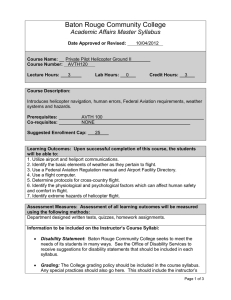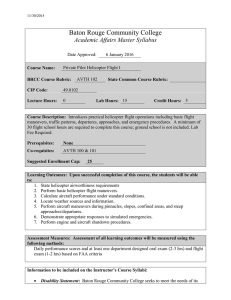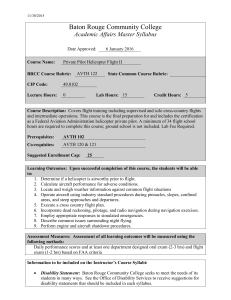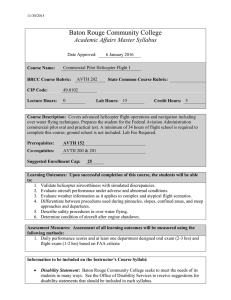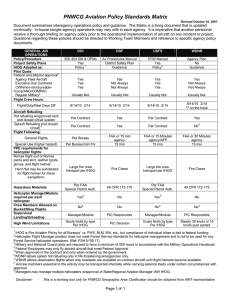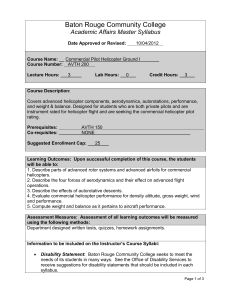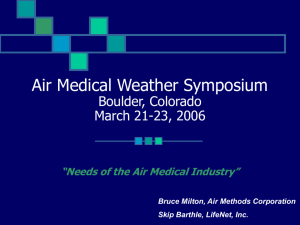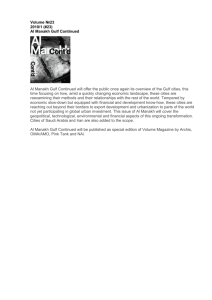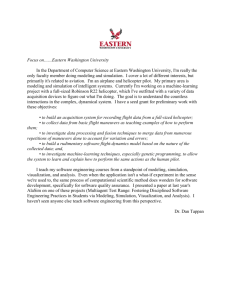Baton Rouge Community College Academic Affairs Master Syllabus
advertisement
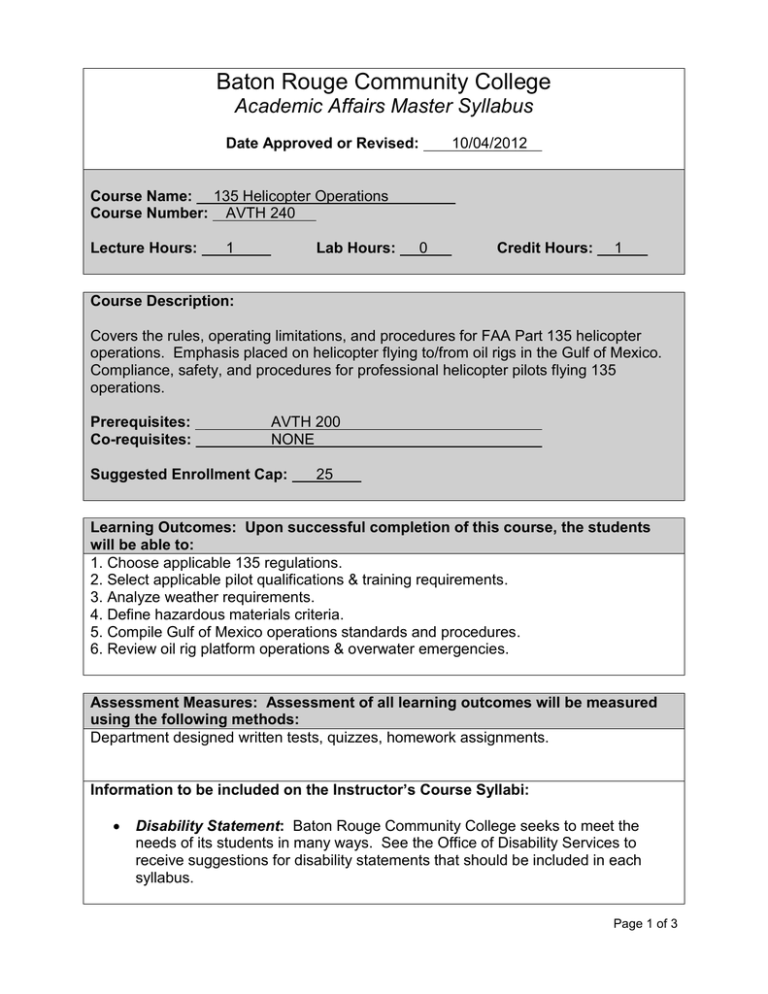
Baton Rouge Community College Academic Affairs Master Syllabus Date Approved or Revised: 10/04/2012 Course Name: __135 Helicopter Operations _______ Course Number: AVTH 240 Lecture Hours: 1 Lab Hours: 0 Credit Hours: __1___ Course Description: Covers the rules, operating limitations, and procedures for FAA Part 135 helicopter operations. Emphasis placed on helicopter flying to/from oil rigs in the Gulf of Mexico. Compliance, safety, and procedures for professional helicopter pilots flying 135 operations. Prerequisites: Co-requisites: AVTH 200 NONE Suggested Enrollment Cap: 25 Learning Outcomes: Upon successful completion of this course, the students will be able to: 1. Choose applicable 135 regulations. 2. Select applicable pilot qualifications & training requirements. 3. Analyze weather requirements. 4. Define hazardous materials criteria. 5. Compile Gulf of Mexico operations standards and procedures. 6. Review oil rig platform operations & overwater emergencies. Assessment Measures: Assessment of all learning outcomes will be measured using the following methods: Department designed written tests, quizzes, homework assignments. Information to be included on the Instructor’s Course Syllabi: Disability Statement: Baton Rouge Community College seeks to meet the needs of its students in many ways. See the Office of Disability Services to receive suggestions for disability statements that should be included in each syllabus. Page 1 of 3 Grading: The College grading policy should be included in the course syllabus. Any special practices should also go here. This should include the instructor’s and/or the department’s policy for make-up work. For example in a speech course, “Speeches not given on due date will receive no grade higher than a sixty” or “Make-up work will not be accepted after the last day of class.” Attendance Policy: Include the overall attendance policy of the college. Instructors may want to add additional information in individual syllabi to meet the needs of their courses. General Policies: Instructors’ policy on the use of things such as beepers and cell phones and/or hand held programmable calculators should be covered in this section. Cheating and Plagiarism: This must be included in all syllabi and should include the penalties for incidents in a given class. Students should have a clear idea of what constitutes cheating in a given course. Safety Concerns: In some programs this may be a major issue. For example, “No student will be allowed in the safety lab without safety glasses.” General statements such as, “Items that may be harmful to one’s self or others should not be brought to class.” Library/ Learning Resources: Since the development of the total person is part of our mission, assignments in the library and/or the Learning Resources Center should be included to assist students in enhancing skills and in using resources. Students should be encouraged to use the library for reading enjoyment as part of lifelong learning. Expanded Course Outline: 135 regulations Compliance Documentation Pilot qualifications Pilot training requirements Flight Crew Duties Flight Crew Flight time and duty day requirements Aircraft requirements Communication & Navigation equipment Flight crew Experience requirements Weather requirements Training requirements Operating limitations Over water operations Recency of experience Hazardous materials Page 2 of 3 VFR Operations IFR Operations Gulf of Mexico operations Oil rig platform operations Overwater emergencies Air Traffic Control in the Gulf of Mexico International Operations Special equipment Airworthiness Minimum Equipment Lists Maintenance & Inspection requirements 135 Manual requirements Accident reporting requirements Record keeping FAA inspections and tests Operational control Passenger carrying requirements Passenger briefing Cargo carrying requirements Objectives: This course is designed to prepare a commercially rated pilot to enter 135 helicopter Air Taxi operations. Special emphasis is on learning the rules and procedures for flying to oil rigs in the Gulf of Mexico. Safety, FAA regulatory compliance, and related topics are also covered. Page 3 of 3
